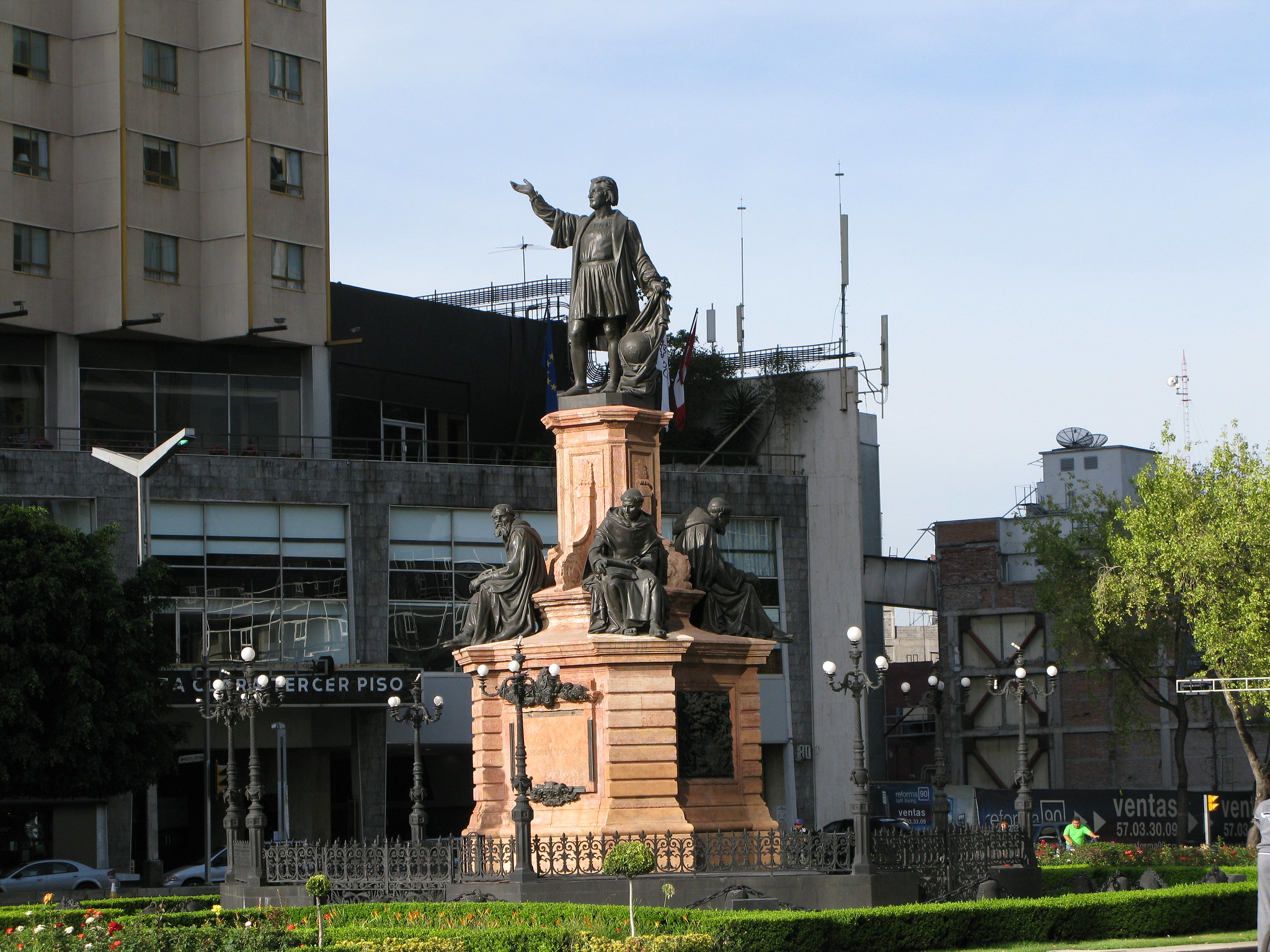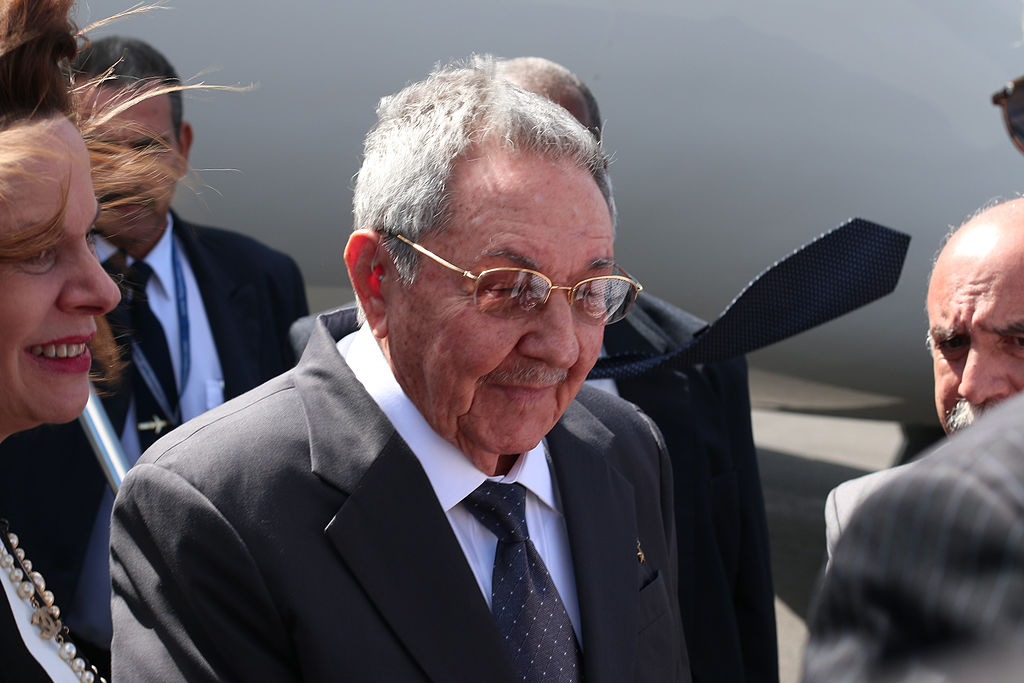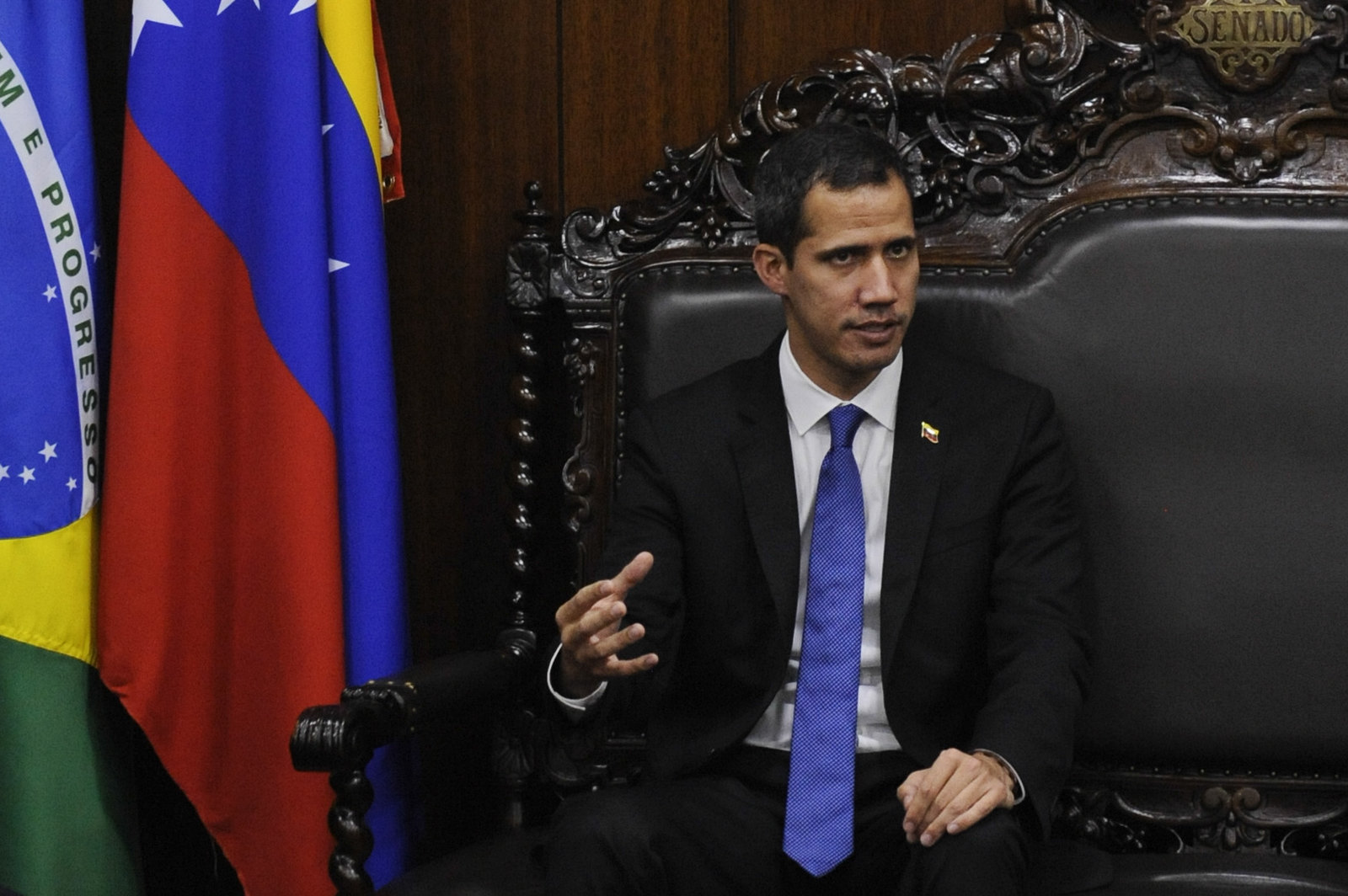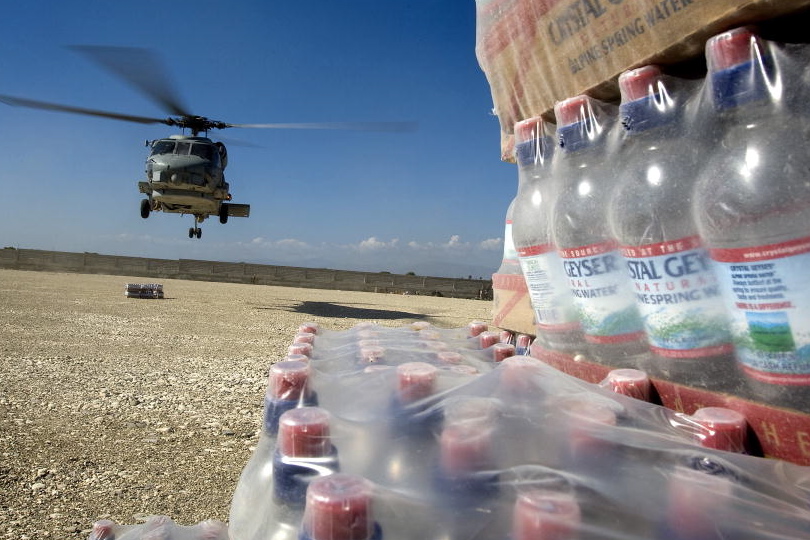
Latin America: Week in Review
Christopher Columbus Monument Removed in Mexico City Ahead of Día de la Raza
October 12, 2020 By Staff
TODAY IN LATIN AMERICA
MEXICO: Mexico City’s government removed a statue of Christopher Columbus from the city’s Paseo de la Reforma in the early hours of Saturday, ahead of planned protests for Oct. 12, when Mexico observes Día de la Raza (Day of the Race). The protests included calls to tear down the statue. In a press conference on Saturday, Mayor Claudia Sheinbaum claimed that the city removed the statue for routine restoration and denied that the decision was motivated by the planned protests. But she added that the time it will take to restore the monument can be an opportunity for a “collective reflection” about what the statue means. She also left the door open for the possibility that the statue will not return to Paseo de la Reforma. The statue was originally placed there in 1877.
The first celebrations on Oct. 12 to commemorate the arrival of Christopher Columbus to the Americas took place in the United States in the late 18th century. In Mexico, the date was declared Día de la Raza in 1917 by President Venustiano Carranza. The observance goes by other names in countries across Latin America, such as the Day of Indigenous Peoples and Cultural Dialogue in Peru, the Day of the Encounter of Two Worlds in Chile, the Day of Respect for Cultural Diversity in Argentina and Indigenous Resistance Day in Nicaragua and Venezuela.
A few days before this year’s observance, Mexican First Lady Beatriz Gutiérrez Müller delivered a letter written by her husband to Pope Francis, requesting an apology from the Catholic Church for its role in the atrocities against Indigenous peoples committed during the conquest of the Americas.
Headlines from the western hemisphere
SOUTHERN CONE
PARAGUAY: The Paraguay River reached its lowest levels in 50 years after months of drought. The water lifeline of Paraguay has been depleted due to lack of rainfall in neighboring Brazil’s Pantanal area in Mato Grosso state. Over 85% of land-locked Paraguay’s trade is conducted on the river. The drought has caused a spike in transport costs from goods ranging from food to fuel. According to a report by the Associated Press, the president of the Paraguayan Shipowners’ Center, Esteban dos Santos, said no ship will be able to reach the capital Asunción in a matter of days as losses top $250 million.
ANDES
BOLIVIA: The country’s vice minister of citizen security gave details over the weekend of the alleged fraud committed by Evo Morales in the October 2019 presidential election. According to Vice Minister Wilson Santamaría’s report, 20 Mexican nationals entered Bolivia in August 2019 to coordinate with Morales government officials a hack of the electoral vote counting software to favor the three-term incumbent, resulting in his last minute surge in the polls last year. Santamaría accused the Mexicans of being part of the government of Andrés Manuel López Obrador and violating Bolivian sovereignty. The accusations by Santamaría come days before a heavily contested special presidential election on Oct. 18 for which Morales’ party leads the polls.
COLOMBIA: Former President and Senator Álvaro Uribe was released from house arrest on Saturday following a court ruling. Uribe was placed under house arrest after a 1,554-page decision by the Supreme Court in August concluded there was enough evidence implicating the former leader in procedural fraud and witness tampering. However, Uribe renounced his Senate seat after he was arrested, and therefore, changed the jurisdiction of his case from the Supreme Court to the ordinary justice system. According to Judge Clara Salcedo’s Saturday ruling, Uribe’s house arrest while investigations continue has no basis under the new legal framework. Uribe, who is the first president in the country’s history to be placed under arrest, has denied the accusations. U.S. President Donald Trump celebrated Uribe’s liberation, calling him an ally in the “fight against Castro-Chavismo.” The victim in the case, Senator Iván Cepeda, announced he would appeal the decision arguing that the government prosecutor of the case favors the former president.
CARIBBEAN
HAITI: Protests in Port-au-Prince continued for a fifth day on Friday as students took to the streets in response to the killing of 29-year-old Grégory Saint-Hilaire, who was allegedly shot by a member of the General Security Unit of the National Palace at the École Normale Supérieure (Normal Superior School). Students called for the identification and arrest of the officer who shot Saint-Hilaire on Oct. 2 during a student-led protest at the university campus. Since the fatal shooting, protesters have resorted to vandalizing buildings, lighting cars on fire and blocking roads. Police have responded with tear gas, while some students reported that police have also used live bullets against protesters as clashes between the two sides led to at least one more death. Similar protest tactics were successfully used in September by a faction of masked police officers who called themselves Fantom 509, as they called for the release of a fellow officer they felt was unfairly imprisoned.
CENTRAL AMERICA
GUATEMALA: Demonstrations against gender-based violence and femicides took place throughout the country over the weekend. Among the protesters’ demands, they called on the Public Ministry to investigate the death of 20-year-old social work student Litzy Amelia Cordon Guardado, who was found murdered last Tuesday after being kidnapped and held for ransom in the eastern municipality of Teculután. Her body was found in the same area Laura Daniela Hernandez, a school teacher, had been found murdered a week prior. After hundreds of women took to the streets of Teculután for a march on Wednesday, protests led by feminist organizations continued through the weekend in at least seven cities. Over 200 women have been killed so far in 2020 in Guatemala, with the vast majority of cases unsolved.
NICARAGUA: The U.S. Department of the Treasury on Friday imposed new sanctions on additional Nicaraguan leaders, including the attorney general and a private secretary to President Daniel Ortega. The sanctions block their U.S. assets and prohibit United States citizens from having dealings with them. The U.S. Office of Foreign Assets also sanctioned the Cooperativa De Ahorro Y Crédito Caja Rural Nacional RL––a savings and loan business known as “Caruna”––stating that the Ortega administration has used the funds to retain power and pay “a network of patronage.” Since 2017, at least 24 people close to Ortega and Vice President Rosario Murillo have received sanctions, including Murillo herself and the couple’s three children. The sanctions are intended to target “corrupt” financial moves and supporters of the Ortega regime.
NORTH AMERICA
MEXICO: After Sonora’s state legislature declared a state of emergency on Saturday because of forced disappearances within the state, Mexico’s National Human Rights Commission (CNDH) agreed to meet with organized collectives of women relatives of the disappeared. These collectives work to uncover the whereabouts of the disappeared. Seven such collectives have been organized in Sonora since May 2019, and they have discovered 240 hidden burial places in the state. The first meeting will take place on Monday in Cajeme, one of the five most violent municipalities in the country, and three more meetings will take place later in the week around the state. Thousands of people have gone missing in recent years in Sonora, although the state government does not have precise figures.
UNITED STATES: In a 2-1 ruling, the 9th Circuit Court of Appeals upheld a district court decision from December halting construction on a wall along the country’s southern border. The decision, made in response to a suit brought by the advocacy groups Sierra Club and the Southern Border Communities Coalition, rules that the Trump administration cannot lawfully use military funds for the wall under the National Emergencies Act, as President Donald Trump tried to do during the 2019 government shutdown. Trump’s emergency declaration would have directed $3.6 billion away from military construction projects to the construction of the border wall.




